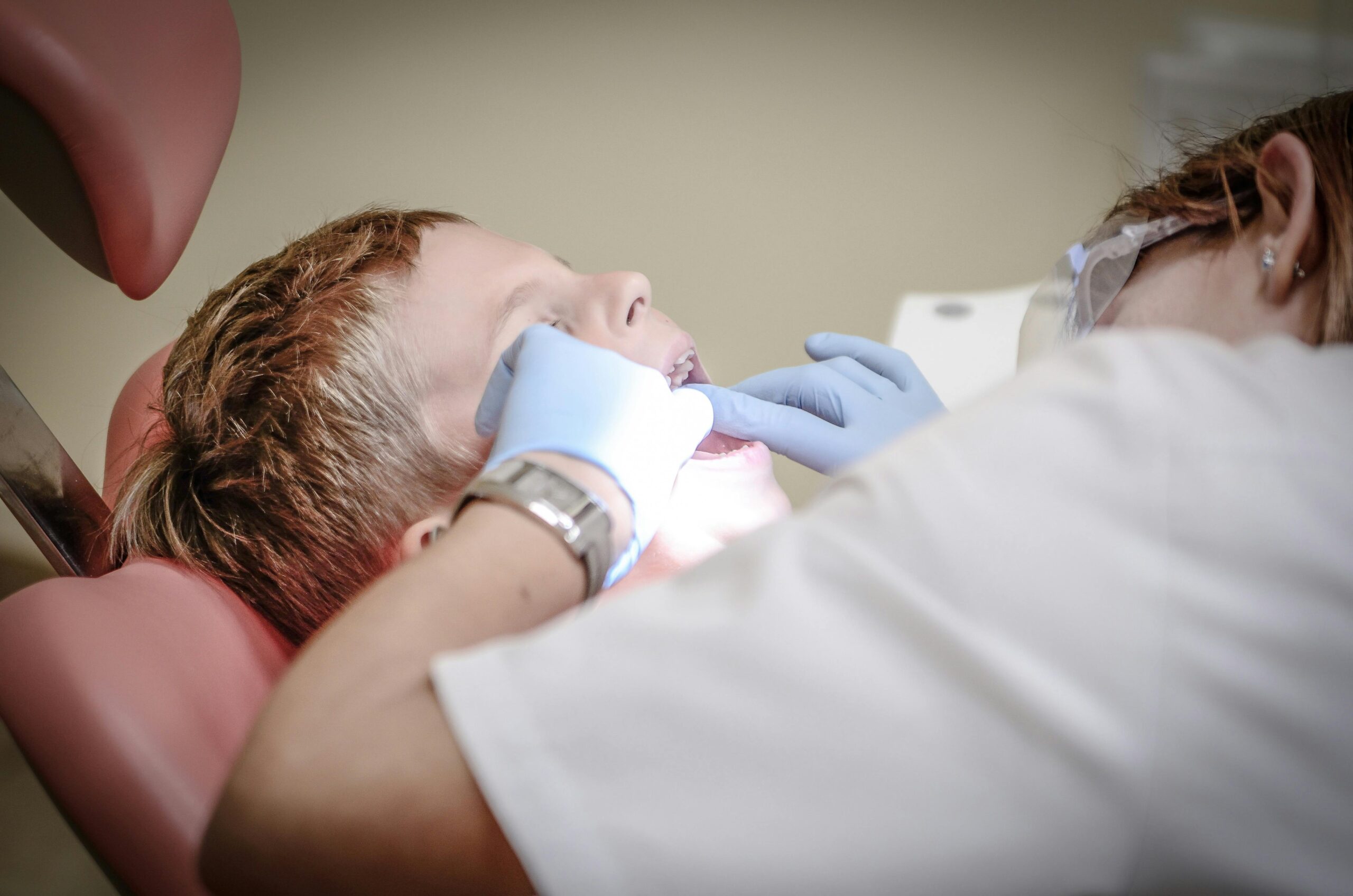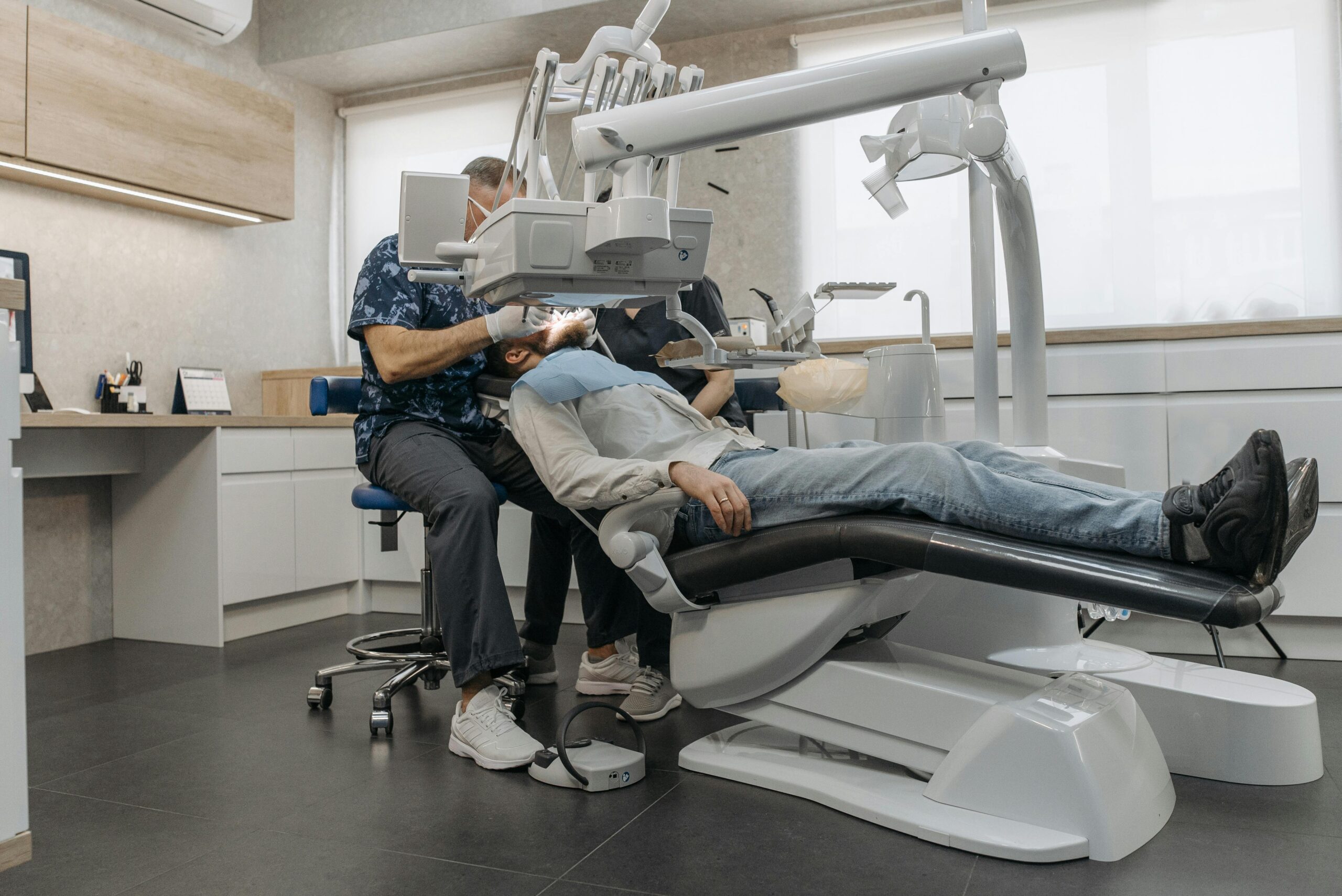How to become a Dental Assistant: Complete Guide

Introduction
In the dynamic field of dentistry, Dental Assistants play a vital role in supporting dental professionals and ensuring quality patient care. As integral members of dental teams, Dental Assistants assist dentists during procedures, prepare treatment rooms, and educate patients on oral hygiene practices. If you’re interested in a rewarding career in healthcare that offers opportunities for growth and stability, becoming a Dental Assistant could be the perfect fit for you. In this complete guide, we’ll walk you through the steps to embark on this fulfilling career path, covering everything from the required education and training to the practical skills needed to excel as a Dental Assistant. Whether you’re considering a career change or just starting out, this guide will provide you with all the information you need to become a successful Dental Assistant in the thriving dental industry.
Who is Dental Assistant and what do Dental Assistant do?
Dental Assistants are essential members of dental healthcare teams who provide valuable support to dentists and dental hygienists in delivering patient care. They perform various tasks to ensure the smooth operation of dental offices and clinics, as well as the comfort and well-being of patients. Dental Assistants work closely with dentists during procedures, prepare treatment rooms, and assist with administrative tasks. Additionally, they educate patients on proper oral hygiene practices and may perform some laboratory duties, such as processing X-rays and sterilizing instruments. Overall, Dental Assistants play a crucial role in maintaining efficient and effective dental practices while providing compassionate care to patients.
– Assisting dentists during dental procedures by handing them instruments, suctioning, and retracting tissues.
– Preparing treatment rooms for patient appointments by setting up instruments, sterilizing equipment, and ensuring cleanliness and organization.
– Taking and developing dental X-rays and other diagnostic images as directed by the dentist.
– Providing chairside assistance to dentists during procedures, anticipating their needs and ensuring patient comfort.
– Educating patients on proper oral hygiene practices, such as brushing, flossing, and dietary habits.
– Taking impressions of patients’ teeth for study models or dental appliances.
– Performing basic laboratory duties, such as processing and sterilizing dental instruments and maintaining equipment.
– Managing patient records and scheduling appointments, as well as handling administrative tasks such as billing and insurance claims processing.
– Following infection control protocols and maintaining a clean and safe environment in the dental office or clinic.
What are the educational qualifications required to become Dental Assistant?
To become a Dental Assistant, individuals typically need to complete a formal education program and acquire certain certifications or licenses. Here are the detailed qualifications required:
- High School Diploma or Equivalent: A high school diploma or GED equivalent is typically the minimum educational requirement to enter a Dental Assistant program.
- Formal Dental Assistant Program: Prospective Dental Assistants can enroll in a dental assisting program offered by community colleges, technical schools, or vocational institutes. These programs can vary in length from several months to one year and culminate in a certificate, diploma, or associate degree. Courses in these programs cover topics such as dental anatomy, chairside assisting, radiography, sterilization techniques, and dental office procedures.
- On-the-Job Training: Some Dental Assistants may receive training on the job, especially in smaller dental practices or offices. While formal education is preferred, individuals may gain practical experience and skills through on-the-job training under the supervision of experienced dentists or senior Dental Assistants.
- Certification: While certification is not always required, many states and employers prefer Dental Assistants to be certified. The Dental Assisting National Board (DANB) offers the Certified Dental Assistant (CDA) certification, which requires candidates to pass the DANB’s CDA examination. Additionally, some states may have their own specific certification requirements.
Which licenses are required to become Dental Assistant?
Some states require Dental Assistants to obtain licensure or registration to practice. Licensure requirements vary by state but may include completing an accredited dental assisting program, passing a written or practical examination, and meeting continuing education requirements.
Overall, completing a formal dental assisting program, obtaining certification, and meeting any state licensure requirements are essential steps to become a qualified Dental Assistant.
Where do Dental Assistant work?
Dental Assistants work in a variety of settings within the dental industry, providing support to dentists and dental hygienists in delivering patient care. They are commonly employed in dental offices and clinics, where they assist dentists during procedures, prepare treatment rooms, and perform administrative tasks. Additionally, Dental Assistants may work in specialty dental practices, such as orthodontics or oral surgery offices, where they provide specialized support in their respective areas. Some Dental Assistants may also work in hospitals, community health centers, or dental schools, where they may have opportunities to work with different types of patients and dental professionals. Overall, Dental Assistants play a crucial role in maintaining efficient and effective dental practices across various healthcare settings.
How long does it take to become a Dental Assistant?
Becoming a Dental Assistant typically requires completing a formal education program, which can vary in length depending on the type of program pursued. Certificate or diploma programs in dental assisting may take anywhere from nine months to one year to complete, while associate degree programs typically last two years. Following completion of the education program, individuals may need to obtain certification, which may require passing an examination. Overall, the process to become a Dental Assistant usually takes between nine months to two years, depending on the educational pathway chosen and any additional certification requirements.
How much does a Dental Assistant make in a year?
The salary of a Dental Assistant can vary depending on factors such as location, experience, and employer type. On average, Dental Assistants in the United States earn between $30,000 and $45,000 per year. Entry-level positions may start at a lower salary, while experienced Dental Assistants or those working in specialty practices may earn higher salaries. Additionally, Dental Assistants working in metropolitan areas or in states with higher costs of living may command higher wages. Overall, Dental Assistants typically enjoy competitive salaries and may have opportunities for advancement and increased earning potential with experience and additional training.
What hours do Dental Assistant work?/ What are the work hours of Dental Assistant?
Dental Assistants typically work regular full-time hours, which may include weekdays and occasional evenings or weekends, depending on the dental practice’s operating hours. In general, they work standard office hours, such as 9:00 AM to 5:00 PM, but some practices may offer extended or flexible hours to accommodate patient appointments. Additionally, Dental Assistants may work part-time or on a rotating schedule, depending on the needs of the dental practice and their own availability. Overall, the work hours of Dental Assistants can vary depending on the specific practice and patient demand, but they typically enjoy a consistent schedule with opportunities for work-life balance.
What qualities must a Dental Assistant have?
Qualities that are important for Dental Assistants include:
- Attention to Detail: Ability to follow precise instructions and maintain accurate records during patient treatments.
- Interpersonal Skills: Effective communication and the ability to interact warmly and professionally with patients and dental team members.
- Empathy and Compassion: Sensitivity towards patients’ concerns and the ability to provide emotional support during dental procedures.
- Technical Proficiency: Competence in using dental instruments and equipment, as well as knowledge of dental procedures and terminology.
- Organizational Skills: Capability to multitask and manage patient appointments, treatment schedules, and administrative tasks efficiently.
- Dexterity: Manual dexterity and hand-eye coordination to assist dentists during procedures and handle dental instruments safely.
- Adaptability: Flexibility to work in a fast-paced environment and adjust to changing patient needs and priorities.
- Professionalism: Maintaining confidentiality, adhering to ethical standards, and upholding patient confidentiality and privacy.
- Problem-Solving Abilities: Ability to identify issues and find solutions quickly, especially during emergencies or challenging patient situations.
- Team Player: Willingness to collaborate with other members of the dental team to ensure optimal patient care and practice efficiency.
What are some related jobs Dental Assistant can have?
Related jobs that Dental Assistants can pursue include:
- Dental Hygienist: Performing dental cleanings, oral exams, and patient education on oral hygiene practices under the supervision of a dentist.
- Dental Laboratory Technician: Fabricating dental prosthetics, such as crowns, bridges, and dentures, in a dental laboratory setting.
- Orthodontic Assistant: Assisting orthodontists with procedures related to braces, aligners, and other orthodontic appliances.
- Oral Surgery Assistant: Providing support to oral and maxillofacial surgeons during surgical procedures, including preparing surgical instruments and assisting with patient care.
- Dental Office Manager: Overseeing administrative tasks in a dental office, such as scheduling appointments, managing patient records, and coordinating billing and insurance processes.
- Dental Sales Representative: Selling dental products and equipment to dental practices, educating dental professionals on product features and benefits, and providing customer support.
- Dental Receptionist: Greeting patients, answering phone calls, scheduling appointments, and managing patient inquiries at the front desk of a dental office.
- Dental Insurance Specialist: Processing insurance claims, verifying coverage, and assisting patients with understanding their insurance benefits and payment options.
- Public Health Dental Assistant: Working in community health centers or public health agencies to provide preventive dental care and education to underserved populations.
- Educator or Trainer: Teaching dental assisting courses at vocational schools, community colleges, or dental assisting programs, or providing training to new Dental Assistants in dental offices.
Dental Assistant Job Industry Challenges
In the dental assistant job industry, several trends and challenges shape the profession. One trend is the increasing demand for preventive dental care and patient education, driven by a growing awareness of the importance of oral health. Additionally, technological advancements, such as digital imaging and electronic health records, are changing the way dental practices operate and requiring Dental Assistants to adapt to new technologies. However, challenges such as workforce shortages, particularly in rural areas or underserved communities, and the impact of COVID-19 on dental practice operations and patient volumes, present ongoing challenges for Dental Assistants. Furthermore, maintaining compliance with evolving infection control protocols and addressing disparities in access to dental care are key challenges facing the profession. Overall, staying updated on industry trends and addressing these challenges are essential for Dental Assistants to provide quality care and adapt to changes in the dental industry.
How to build a professional network in the Dental Assistant industry?
Building a professional network in the Dental Assistant industry involves actively engaging with colleagues, mentors, and industry professionals. Attending dental conferences, seminars, and continuing education courses provides opportunities to connect with other Dental Assistants, exchange knowledge, and stay updated on industry trends. Joining professional organizations such as the American Dental Assistants Association (ADAA) or local dental assistant societies allows for networking through events, workshops, and online forums. Volunteering for leadership roles in professional associations or participating in community outreach programs can also expand your network and enhance your visibility in the industry. Additionally, maintaining connections with dentists, dental hygienists, and other dental professionals in your area fosters mutual support and collaboration in patient care.
Get a high paying Dental Assistant job.
Ready to take your Dental Assistant career to the next level and secure a high-paying job in the dental industry? Look no further than Pulivarthi Group. As a premier staffing agency specializing in dental placements, we connect talented Dental Assistants like you with top-tier employers offering competitive salaries and rewarding career opportunities. By signing up with Pulivarthi Group, you’ll gain access to our extensive network of dental practices and clinics actively seeking skilled professionals to join their teams. Whether you’re seeking positions in general dentistry, orthodontics, oral surgery, or other specialized areas, we’re here to help you find the perfect fit for your skills and expertise. Don’t wait any longer to advance your career and achieve your professional goals. Join Pulivarthi Group today and unlock the door to high-paying Dental Assistant jobs in the thriving dental industry.
Related articles

Maximizing Productivity with Efficient Dental Office Management
Discover strategies to boost productivity in your dental office through effective management.

The Role of Temporary Staffing in Managing Dental Practice Workflows
Learn how temporary staffing can help streamline workflows and improve efficiency in dental practices.

Overcoming the Challenges of Veterinary Recruitment: Strategies for Success
Discover effective strategies to overcome the challenges of veterinary recruitment and attract top veterinary talent with our guide.

How to Ensure Compliance with Dental Industry Regulations
Find out essential steps to ensure your dental practice complies with industry regulations.
Apply for Jobs
-
26 Jul 2024

Netskope Database Engineer
Job Title: Netskope Database Engineer Location: Remote Duration: 6 months Company Overview: Pulivarthi Group is a premier global provider of staffing and IT technology solutions, renown
Remote : YesTax Terms: C2C, W-2, 1099 -
26 Jul 2024

Chatbot Developer
Job Title: Chatbot Developer Location: Remote Duration: Long Term Company Overview: Pulivarthi Group is a premier global provider of staffing and IT technology solutions, renowned for d
Remote : YesTax Terms: C2C, W-2, 1099 -
26 Jul 2024

WebSphere Administrator
Job Title: WebSphere Administrator Duration: Long-term Location: 100% Remote Company Overview: Pulivarthi Group is a premier global provider of staffing and IT technology solutions, ren
Remote : YesTax Terms: C2C, W-2, 1099 -
25 Jul 2024

Reltio MDM Developer
Job Title: Reltio MDM Developer Location: Remote Company Overview: Pulivarthi Group is a premier global provider of staffing and IT technology solutions, renowned for delivering exceptio
Remote : YesTax Terms: C2C, W-2, 1099 -
25 Jul 2024

Einstein AI Consultant
Job Title: Einstein AI Consultant Location: Remote Company Overview: Pulivarthi Group is a premier global provider of staffing and IT technology solutions, renowned for delivering except
Remote : YesTax Terms: C2C, W-2, 1099 -
25 Jul 2024

BICC Admin
Job Title: BICC Admin Location: Remote Company Overview: Pulivarthi Group is a premier global provider of staffing and IT technology solutions, renowned for delivering exceptional servic
Remote : YesTax Terms: C2C, W-2, 1099
For Employers
For Talent
Quick Links
-
1188 Stonecrest Blvd, Ste 103,
Tega Cay, South
Carolina, 29708
Socials
©Copyright 2024 Pulivarthi Group

